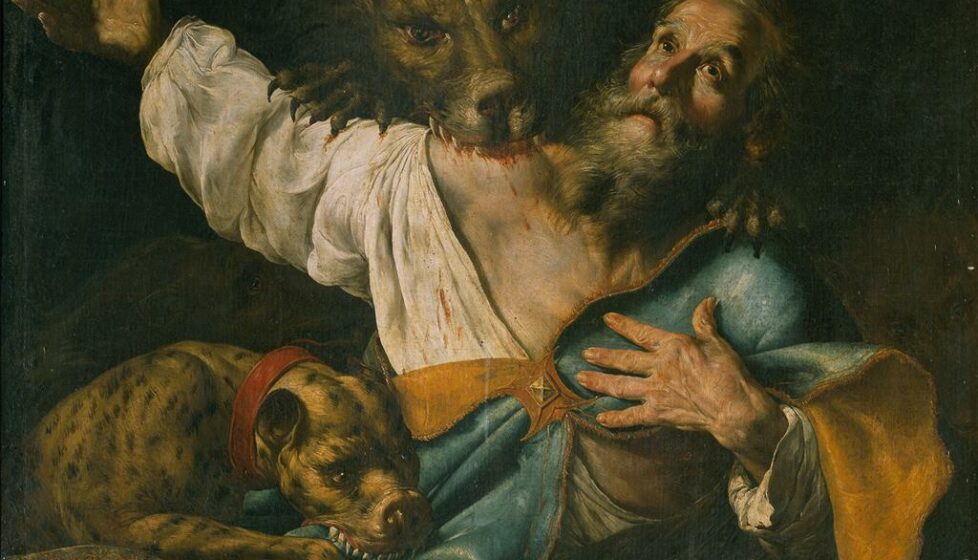Stories of Christian Martyrs: The Apostle John
Ephesus

Unlike his apostolic companions, John died quietly in the city of
Ephesus, serving the church he loved. But he didn’t live a quiet
life. By the time he died, John had been part of the twelve disciples of Jesus, participated in the early life of the church in Jerusalem,
traveled widely, and had written five New Testament books (the Gospel
of John, the letters 1 John, 2 John, 3 John, and Revelation). John certainly had an impressive résumé of accomplishments, but he would probably have been the first to point out that anything he had done in life paled in comparison to what Jesus did for him. John’s character résumé tells us a lot about the ways Jesus changes a person’s life.
The fact that John survived the other apostles points to the kind of
unique suffering he endured. All of the other disciples suffered and died;
John suffered and lived. Though not technically a martyr, John’s life
displayed a martyr’s qualities. He was a living sacrifice worthy of imitation. And as we shall see, he only escaped actual martyrdom by God’s
intervention on several occasions.
John and his brother James were two of the more fiery members of
Jesus’s disciples. Artistic renditions and personal impressions often create a distorted picture of John. Yes, he was the disciple Jesus loved, but
that didn’t mean that he was particularly lovable. He was more likely a
typical fisherman of his time: rough cut, hardworking, brash, and short
on social graces. Jesus called John and his brother “Sons of Thunder,”
which was probably more a term of endearment than a compliment.
Mark reports that special name early in his gospel (3:17), indicating that
their character traits were obvious from the beginning. They certainly
lived up to that nickname.

On one occasion, after Peter, James, and John saw Jesus transfigured
on the mountain, a revealing argument broke out among the disciples over
their internal pecking order: Who was the greatest? After Jesus disarmed that argument, John reported that he and the others had confronted someone who was casting out demons in Jesus’s name. They had told that man to stop “because he does not follow with us” (Luke 9:49). If John expected Jesus’s approval, he was taken aback by Jesus’s insistence that others should be encouraged to make use of the power in Jesus’s name.
But the jockeying for power and prestige were not over. Luke immediately describes the final journey to Jerusalem and an incident in Samaria in a town where Jesus was not welcomed. John and James, eager to flex what they might have considered heightened authority among the Lord’s followers, volunteered to take action: “Lord, do you want us to
tell fire to come down from heaven and consume them?” (Luke 9:54).
We are simply told that Jesus “turned and rebuked” them for this suggestion, raising the possibility that Jesus said nothing, but turned so they could see his face. The look may have been a more devastating rebuke
than words. The process of discipleship Jesus practiced with the first
disciples was painstaking and time-consuming. And it continued
throughout the apostles’ lives.
John learned to love the hard way. When he consistently leaves his
name out of his gospel but describes himself as the disciple Jesus loved (John 13:23), he’s revealing what transformed him from a son of thunder to a son of love. Jesus loved him. John never lost his hunger for truth. Even a casual reading of his gospel and the three letters of John gives the impression that the writer was a champion for truth. But an even greater impression arises in John’s writings that he was a man of love. Ancient witnesses like Eusebius record that by the end of his life, John had simplified his message to one gentle command: “Children, love one another.” Apparently, whenever he was asked to speak or comment, that was his chosen statement. When asked about it, he responded that everything else necessary would be taken care of if that one command were faithfully carried out.
That simple but profound message still describes the difference
between authentic discipleship and inconsistent following of Jesus. Since
the beginning, believers haven’t been persecuted and killed just because
they held a set of beliefs. Their lives have provoked reactions. The darkness has violently resisted and tried to destroy Christ’s followers because of the awesome power that love brings into any human situation. The message of the God who loves and who changes people into genuine lovers represents everything the darkness abhors.
John certainly did not live a long life unscathed by pain and suffering. His emotional trials must have been considerable. He lived during times in which those who killed or abused Christians had nothing to fear from the law. In fact, they were sometimes carrying out the law. The painful death of friend after friend must have taken a heavy toll on him. Tradition holds that on one occasion, John was scheduled for boiling in oil. He escaped by divine intervention. His exile on Patmos easily could have been a death sentence. When Emperor Domitian, who had exiled him to Patmos, had died, John was brought back to Ephesus, where he was confined for two years. It is written that he was compelled to drink poison but was unharmed, and finally died in peace.
This story is an excerpt from Foxe: Voices of the Martyrs. You can get your own copy free with any donation to The Voice of the Martyrs.

